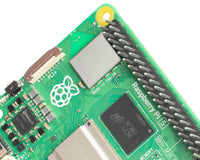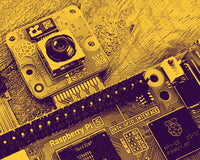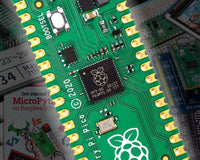Raspberry Pi Roundup - 19th March 2015
Eclipse

Dave Akerman will once again be using the Raspberry Pi in a pair of balloon launches that will take place at 8am on Friday in time for the solar eclipse due to occur in the UK around 9.30am. The two launches, which will take place at Leicester race course, will use A+s together with Dave’s Pi in the Sky+boards to send back images from above any cloud cover there happens to be. You can follow the launch in several ways:
- By viewing the online map. Watch out for KRYTEN/RIMMER and MARVIN/ZAPHOD
- By viewing the live images being transmitted and received.
- By watching the BBC Stargazing programme on BBC1.
You can read more about the launch by visiting the Raspberry Pi blog.
LEGO IOT
The guys over at PubNub have created a house out of LEGO then filled it with LEDs and sensors which are controlled and read by a Pi. They’ve then used their own proprietary software to create an Internet of Things link up to the components and something called Blink created by the Chromium Project to do the GUI. Read more here.
Tanzania

Masekelo secondary school in Tanzania doesn’t have many resources. The children have to collect water for the school every day and there are often not enough desks and chairs to go around. The Tanzanian government has decreed that every school should have a science lab, but yet has provided no funds for it – everything is supposed to come from donations from parents or other sources. Considering the parents of the children at this school tend to be subsistence farmers, this has proved to be something of a challenge!
Janet Chapman from Wikimedia visited the school last September and spoke to the headmaster about the issues and donated a Raspberry Pi filled with pre-loaded content from the RACHEL project (which includes Wikipedia for Schools, 2,000 maths and science videos from Khan Academy, and 800 classic books and various health resources). The Pi (which is battery-powered) runs a wifi hotspot so that the content can then be accessed from available tablets and phones which the school already has.
You can read more in Janet’s report on Wikimedia. You can also follow the progress of the Masekelo project on the school’s Facebook page.





